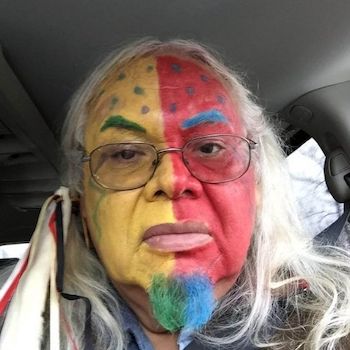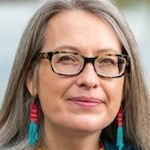We use cookies on this site to enhance your experience.
By selecting “Accept” and continuing to use this website, you consent to the use of cookies.
Search for academic programs, residence, tours and events and more.
Social Justice and Solidarity Week (SJSW) at Laurier was an annual event that showcased work from in and around the Laurier community that promoted notions of equity, diversity, inclusion, and decolonization, with a particular emphasis placed on advocacy, solidarity efforts, human rights and social justice issues with implications locally, nationally, and/or globally.
The event prompted very important and much-needed conversations. In offering a wide variety of events and programming to educators, students, community leaders and members and front-facing practitioners, the event provided a space where individuals could come together to engage in meaningful conversations and share insights about works-in-progress with the hopes of further developing our collective capacity to self-reflect, collaboratively theorize, and courageously build.
The weeklong series of events took the form of various interactive workshops and sessions, panels and plenaries, keynote/featured speakers, podcasts, arts, books, and craft displays, where attendees had the opportunity to access information and resources, then plan, strategize and engage around issues of social justice.
The inaugural Social Justice and Solidarity Week of 2021 centred local voices, scholarship, and activism surrounding land reclamation initiatives along the Haldimand Tract and across Turtle Island. SJSW opened with an exploration of historical commitments and the histories of how they were breached, leading to Haudenosaunee land becoming the city of Brantford.
Central to any conversation about #LandBack within academic spaces is the positionality of the university as a settler colonial institution and its implication within the processes of land theft and appropriation. SJSW ended with a call to action to settlers on the Haldimand Tract and beyond to work in meaningful allyship that leads to concrete steps towards liberation and sovereignty. Participants in SJSW came away with an understanding of allyship as an ongoing humble process of healthy and reciprocal relationship-building rather than a singular destination or finitely obtainable goal.
The inaugural launch took place from October 25-29, with the overarching theme of “Treaty Recognition, #LandBack, and 'Reconciliation'." The series of virtual events was designed to provide opportunities for members of the Laurier community to engage, learn, and reflect on issues tied to Treaties Recognition Week (Nov. 1 to 5, 2021) which was passed by the Ontario legislation in 2016 in an effort to rebuild trust and relationships with Treaty partners and First Nations, Métis, and Inuit peoples.
 Speaker: Jock Hill
Speaker: Jock HillLeroy "Jock" Hill is of the Cayuga Nation and Bear Clan. He is a Faithkeeper and Sub-Chief. He has been married for 33 years, has five children and 11 grandchildren. Leroy is a speaker of The Great Law of Peace, Gaihwiyo-Good Message, as well as the Longhouse cycle of Ceremonies. He is a speaker of three Haudenosaunee languages and one of the Wampum/Record Keepers for the Haudenosaunee. Leroy has worked as the Confederacy Council Secretary since 2005. He has helped develop and remains an advisor for numerous language programs. He currently works as coordinator for the Haudenosaunee Resource Centre. He is also a Cultural Advisor/Board member of Grand River Employment and Training (G.R.E.A.T) since 2003. As well, he is a cultural advisor to numerous departments and organizations at Six Nations. Leroy is a professor of Indigenous Knowledge (2013) and worked as co-instructor of Indigenous Studies at McMaster University. He is currently instructing youth at the Haudenosaunee Resource Centre.
 Speaker: Rick Hill
Speaker: Rick HillThis presentation will explore the history of the Haldimand Tract as it relates to the current City of Brantford. We will look at Joseph Brant's vision, how we could co-exist in this region, and his intentions for sharing the land. We will learn about the establishment of a Mohawk community at Brant's Crossing and how the modern-day 'reserve' was created within the city limits. We will also re-examine the land holdings of the New England Company in and around the Mohawk Institute. Then, we will learn about the removal of the Haudenosaunee from the region and the consolidation of settlements that formed the current boundaries of Six Nations. We will conclude with a discussion to seek creative ideas resolve the ongoing land matters.
Rick is a citizen of the Beaver Clan of the Tuscarora Nation of the Haudenosaunee at Grand River. He holds a Master’s degree in American Studies from the State University of New York at Buffalo. He is the former assistant director for Public Programs, National Museum of the American Indian, Smithsonian Institution; museum director, Institute of American Indian Arts, Santa Fe, New Mexico; and assistant professor, Native American Studies, SUNY Buffalo. Formerly, he served as senior project coordinator of the Deyohahá:ge: Indigenous Knowledge Centre at Six Nations Polytechnic, Ohsweken, Ontario. Rick is working with a group of historians on a book on the history and legacy of the Mohawk Institute, the oldest Indian residential school in Canada. Currently, he is the Indigenous Innovation specialist at Mohawk College in Hamilton and is an advisor to First Nations Technical Institute at Tyendinaga Mohawk Territory.
 Wednesday, Oct. 27 at 1 p.m.
Wednesday, Oct. 27 at 1 p.m.#LandBack is a movement that has existed for decades that organizes and resists to move Indigenous Lands back under the stewardship of Indigenous peoples. There are #LandBack camps and occupations happening all across Turtle Island that need support. This panel will hear from land defenders from various #landback battles such as 1492 Land Back Lane and Gidimt'en Yintah Access on Wet’suwet’en territory. The panel will explore their struggles to protect what colonization and state have attempted to steal: land, water, language, ceremony, medicine, and kinship. It will also carve out ways that non-Indigenous people and groups can act in solidarity.
 Speaker: Theresa McCarthy
Speaker: Theresa McCarthyWhile the Truth and Reconciliation Commission further exposed the violent legacies of education for Indigenous peoples in Canada, the response to it has been largely confined to mainstream educational reform. Less attention has been paid to reconciling issues of Indigenous land, even though the acquisition of Indigenous land was the rationale for the Indian Residential School System in the first place. While Indigenous children suffered in residential schools, stolen Indigenous lands and resources built the infrastructure of the Canadian settler state, including its institutions of higher education. Taking this ongoing legacy into account, this presentation will examine recent US-based, Indigenous scholarship on “Land Grab Universities” to consider how we might contextualize this discussion in Canada, as well as within the regional Grand River Haudenosaunee context specifically.
Theresa McCarthy, Six Nations Onondaga, Beaver clan, is the chair and associate professor in the Department of Indigenous Studies and associate dean for Inclusive Excellence at the University at Buffalo. She is the author of In Divided Unity: Haudenosaunee Reclamation at Grand River (University of Arizona Press, 2016). Professor McCarthy has worked on many Indigenous community-based research projects over the years including on a SSHRC-funded archival project that digitized and repatriated an extensive collection of late nineteenth and early twentieth-century ethnographic material collected from Six Nations community members. A longtime advocate for the revitalization of Indigenous languages, Theresa has worked on reinstating Haudenosaunee language courses at the University of Buffalo and on building relationships with nearby Haudenosaunee communities in Western New York in support of Indigenous language learning. She is both grateful and proud to be living and working on Seneca Nation territory.
It is becoming almost commonplace for many people, organizations and institutions to make land and territorial acknowledgements. Challenges, however, still arise regarding understanding the reasons for such acknowledgements and not knowing what should be included. This workshop will provide historical and contemporary contexts to explain the importance of acknowledgements, understanding meanings of land and territorial acknowledgements in relation to Indigenous peoples and oneself, how to move away from rote acknowledgements, and using acknowledgements to encourage discussions of Settler implications in reconciliation.
This panel explores the multi-faceted nature of the front line in #landback work. It tackles local struggles, including food security, environmental racism, and building a safe space for Indigenous youth and the 2SLGBTQ+ community.
SJSW 2021 is brought to you by:
Contact Us:
Andrea Davis, Associate Vice-President: Equity, Diversity and Inclusion